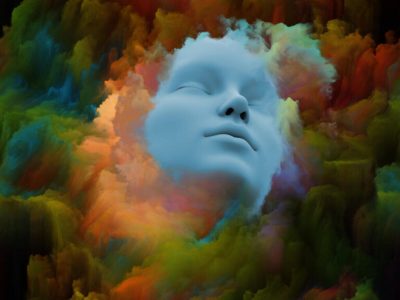Do you hate getting up early? Are you more active and productive at night? Do you tend to perform your routine tasks when most of the population is already asleep? If so, it’s probably likely that throughout your life you’ve felt rather judged by your environment. In fact, people may even have labeled you as lazy, chaotic, or disorganized. That’s because we’re all expected to adapt to a daytime schedule. However, maybe it’s time to learn a little more about night owls.
It’s estimated that about 20 percent of people possess this chronotype. In other words, they reach their maximum energy point after dark. Furthermore, they experience serious difficulties in functioning first thing in the morning. As a matter of fact, they spend their whole lives fighting their own inclinations in order to conform to the rhythms of society and might even be seen as misfits. However, what do we really know about this group of individuals?
Being a night owl isn’t a choice
Many people think that night owls choose to have a sleep schedule out of step with the social norm. They think they lack the will to go to sleep and get up early. However, this isn’t so straightforward.
In fact, several investigations have shown that the chronotype is, to a large extent, genetically determined. Thus, these people are born with a predisposition to manifest this nocturnal tendency.
In addition, some studies have found that there’s even a genetic mutation that has strong effects on sleep patterns. Indeed, in those who present it, the cycle lengthens. This means the person can’t fall asleep until well into the early hours. Furthermore, they suffer when they’re forced to wake up earlier than they wish. Ultimately, it’s not a voluntary choice but a biological determination.
They’re often diagnosed with delayed sleep phase syndrome
The fact that the chronotype varies from person to person may have been an evolutionary advantage in ancient times. For example, when humans lived in small tribes they needed to ensure that there was always someone awake and alert at every moment of the day and night. However, currently, society follows a marked daytime rhythm, so night owls can’t adapt, hence they suffer serious consequences.
As a matter of fact, they’re often diagnosed with the so-called delayed sleep phase syndrome. This means they need to fall asleep and get up several hours later than is desirable in accordance with social conventions.
When these people are allowed to choose their sleep schedule, they enjoy adequate rest in quantity and quality. However, having to go against their natural tendency means they suffer discomfort and difficulties. These symptoms are often serious enough to reach the proportions of a disorder.
They can stay mentally alert for longer
We generally tend to think of early risers as more energetic and productive. Nevertheless, this isn’t entirely true.
In fact, if we talk about the number of hours that an individual can remain alert and mentally agile, the night owls win. In addition, some studies have found that, after ten hours of wakefulness, night owls demonstrate greater cerebral activation in the regions related to attention.
They obtain better scores in intelligence tests
For a long time, we’ve known that there are multiple intelligences. Furthermore, that the capacities of each individual vary from one to another. However, studies show that, in tests that measure general intelligence (the so-called G factor), night owls obtain higher scores than their morning counterparts.
However, despite this advantage in intelligence and the fact that their inductive reasoning capacity seems to be superior, nocturnal people tend to achieve worse academic and work performances.
The reason for this is that they’re forced to perform in their less functional hours. In addition, they’re suffering from significant sleep deprivation. This prevents them from acting optimally.
Night owls are more creative
In addition to the above, it seems that night owls tend to be more creative kinds of people. As a matter of fact, they use lateral thinking more than morning people. In other words, they show an advantage when it comes to finding alternative solutions and applying different and original points of view.

They’re more likely to get sick
However, not everything is positive. In fact, research has suggested that night owls are more prone to diabetes, obesity, stress, psychological and neurological disorders. They’re even ten percent more likely to die earlier than early risers. Again, this is closely related to their inability to adjust to schedules, leading to insufficient and low-quality sleep, poor diet, and worse lifestyle habits.
Despite all the above, we can’t forget that individual differences exist. Indeed, the findings presented are generalities. Therefore, they don’t determine the qualities or performance of all people. In this way, not all early risers are less creative and not all nocturnal ones are more likely to get sick. In fact, it all depends on individual circumstances at both the genetic and environmental level.
However, perhaps the previous results will help us rethink the need to respect each person’s chronotypes without judgment. This would help to make society more flexible in order that each individual is able to reach their maximum development.
The post Six Curious Facts About Night Owls appeared first on Exploring your mind.



















Comments